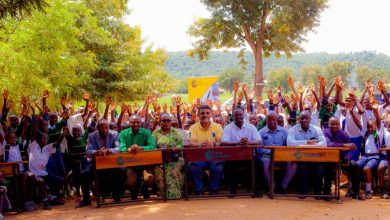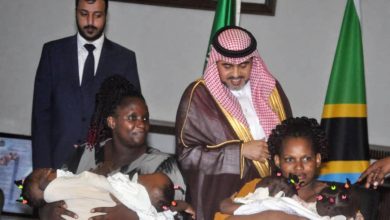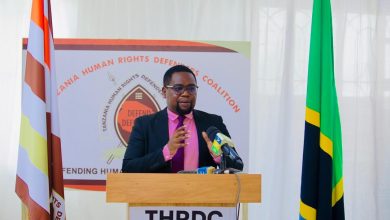How MTAKUWWA program transforms parenting, protects young lives

Tanzania is doubling down on protecting its future, and the spotlight is on the country’s very important national initiative: MTAKUWWA.
Standing for Mpango Kazi wa Taifa wa Kutokomeza Ukatili dhidi ya Wanawake na Watoto—or the National Action Plan to End Violence Against Women and Children and this program has quietly become a powerhouse for safety, education, and child development.
Implemented by the Prime Minister’s Office, MTAKUWWA coordinates multiple stakeholders from government ministries to civil society organizations—to ensure that Tanzanian women and children can live free from abuse and neglect.
In essence, MTAKUWWA is about building protective networks everywhere: national, regional, and local committees are trained and deployed to prevent violence, monitor its occurrence, and ensure proper reporting.
It’s an ambitious endeavor, aiming to cut all forms of violence by 50%, a lofty target that has prompted some to joke that it’s easier to teach a cat to do taxes than reduce violence but the country is making notable strides.
The program focuses on several key goals: enhancing reporting and data collection on abuse, raising awareness of the rights of women and children, strengthening institutional capacity to respond effectively, and fostering collaboration at the grassroots.
In other words, it’s not just talk it’s about action, follow-up, and measurable results.
A shining example of MTAKUWWA’s impact can be seen in Ruvuma Region, where the Ruvuma Orphanage Association (ROA) is leading the charge in early childhood education and protection.
On November 15, 2025, ROA’s Executive Director, Mr Matthew Ngalimanayo, spoke at the first graduation ceremony of Cheers Daycare Center in Mahenge, Songea Municipality, emphasizing how MTAKUWWA dovetails with responsive parenting and child development.
“I kindly encourage Cheers Daycare Center to work closely with the Government and familiarize yourselves with this program,” Ngalimanayo said.
“Early childhood learning is extremely important. It includes proper nutrition, and I urge parents and guardians to accompany their children to places of worship to strengthen their spiritual foundation. Children learn through what they observe and experience.”
Ngalimanayo’s words resonated with the audience, highlighting that raising a child is far more than teaching ABCs—it is about nurturing habits, resilience, and respect.
He reminded parents and teachers that under Tanzania’s 2009 Child Act, anyone under 18 is legally considered a child, and science confirms the urgency of the early years: a newborn’s brain is only 25% developed, but by age six, it reaches roughly 90% of its capacity.
“Invest in these years,” he urged, “and stop using abusive language—it does more harm than good.” MTAKUWWA’s approach is holistic. In addition to legal and structural frameworks, it works directly with communities, training committees to observe, prevent, and respond to violence.
In Ruvuma, for example, the program has been integrated into early childhood centers like Cheers Daycare, ensuring that children are not only safe but also developing cognitively and emotionally in nurturing environments.
The event’s celebration of children was a vivid reminder of the stakes. Shadrack Mwera, founder and owner of Cheers Daycare Center under the Pentecostal Holiness Mission (PHM), shared that the school had opened in 2024 with only two pupils.
ALSO READ: TRITA seeks solutions to migration challenges facing Tanzania
By 2025, enrollment had grown to 30 pupils, supported by two teachers and a cook. This year, 16 children—eight boys and eight girls—graduated. Mwera highlighted the challenges of limited space and resources, calling on development partners to assist with land and materials.
Yet, the children themselves stole the show. Doreen Stanley Mrema, speaking on behalf of the graduates, delivered a confident address highlighting classroom shortages, inadequate desks, and limited play materials. The poise of children under eight, articulating concerns with clarity and self-assuredness, drew nods and
smiles from the audience.
Responding to these concerns, Ngalimanayo pledged ROA’s support in securing land for expansion and assisting with construction and other school needs, demonstrating that programs like MTAKUWWA are not abstract policies—they are actionable interventions that improve everyday life for Tanzanian children.
The ceremony also emphasized the broader role of parents and community leaders. Pastor Elimu Bernard Mwenzegule of PHM encouraged intentional nurturing, emphasizing identity, self-respect, and reverence for God as core elements of child development.
Teachers, he noted, are role models—children learn more from watching daily life than from lectures.
From a governmental perspective, Edda Venant Komba, Songea Municipal Social Welfare Officer, urged parents to maintain dignity in parenting and guide children’s behavior with love.
“If you discipline your child and they do not listen, find someone close whom they trust to talk to them,” she advised. “Do not burden children with your personal disappointments; it harms them psychologically.”
Even law enforcement contributed practical guidance. Sergeant Tuntufye, counselor from the Gender and Children’s Desk in Songea, reinforced the importance of clear boundaries and loving correction. “Do not insult your children,” he said.
“Correct them appropriately for their age and then show love so they understand discipline is for their benefit. Lead by example, and teach responsibility.”
It’s this combination of government oversight, community engagement, and parental education that makes MTAKUWWA a standout initiative.
By addressing abuse at multiple levels—from legislation to everyday parenting—it ensures that Tanzanian children grow up in environments conducive to safety, learning, and emotional well-being.
The program’s significance extends beyond individual households. As Mr Ngalimanayo explained, responsive parenting and early childhood education are essential for long-term national development. When children are raised in safe and stimulating environments, they are more likely to become productive, responsible adults.
In that sense, MTAKUWWA is not just a program—it’s an investment in Tanzania’s future.
Interestingly, MTAKUWWA also encourages a subtle cultural shift. Parents and guardians are reminded that their behavior, language, and attitudes have ripple effects. By modeling respect, responsibility, and empathy, adults contribute directly to reducing violence and fostering healthier communities.
This is where humor, gently applied, comes in: “Think of your children as little mirrors,” joked one speaker at the event, “if you act like a grumpy cat, don’t be surprised when you get 30 mini-grumpy cats in return!” The message is serious, but the humor makes it relatable.
Students, parents, and teachers alike walked away with a renewed understanding of their roles. Children felt empowered to speak, parents recognized their influence, and teachers understood that their dedication shapes lives far beyond the classroom.
In sum, MTAKUWWA is proving that tackling gender-based violence and promoting child development need not be dry or bureaucratic. With well-trained committees, engaged communities, and committed leaders like Ngalimanayo, Mwenzegule, Komba, and Tuntufye, Tanzania is showing how policy, practice, and compassion can converge.
By strengthening early childhood education, reinforcing responsive parenting, and embedding protective mechanisms across society, MTAKUWWA is creating a safer, smarter, and more compassionate generation. And if the children graduating from Cheers Daycare are any indication, the program is succeeding.
Their confident voices, well-structured speeches, and clear-eyed understanding of their needs signal a new era where Tanzanian children are not only learning ABCs but also asserting their right to safety, respect, and love.
Ultimately, the success of MTAKUWWA demonstrates that violence prevention is not just about enforcement—it’s about awareness, culture, and community action. It’s about ensuring that every Tanzanian child can say, with confidence: “I am protected. I am valued. I am learning.” And that, perhaps, is the most compelling success of all.





